[Event] [Osaka]5th Annual Conference (Sunday, September 19, 2021)

This event has ended.
The 5th Annual Meeting will be held on Sunday, September 19, 2012. We will report the results of our daily research on intestinal flora transplantation, including basic research reports and case reports, and we look forward to your participation at the venue or online.
Please register for on-site participation by noon on Thursday, September 16.
On-site participants are requested to wear masks.
Please take your temperature and disinfect your hands at the registration desk.
Please note that we may refuse admission if you have a fever of 37.5 degrees Celsius or higher.
Please dress casually as it is still hot season.
Please note that we may not be able to admit anyone who has a fever of 37.5 degrees or more.
Please note that no cancellations will be accepted after the deadline, either at the venue or online.
Day & Time
Sunday, September 19, 2021 Opening at 11:00 a.m. ( doors open at 10:30 a.m. ) – Closing at 5:00 p.m.
Program of the 5th Annual Conference
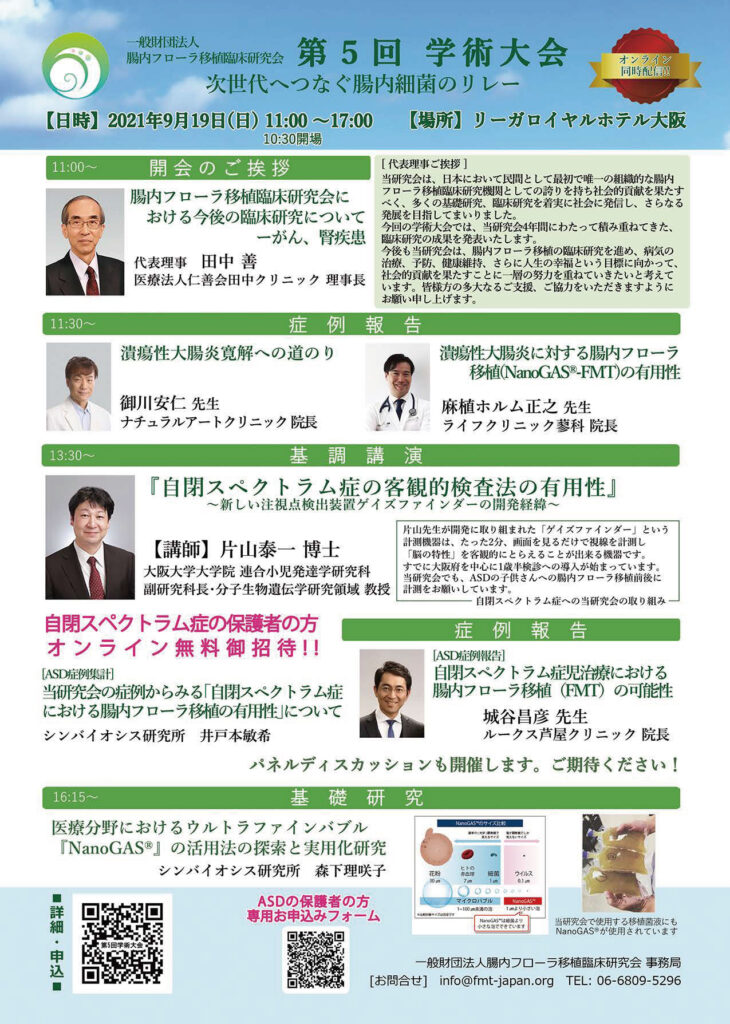
| 9:30 | General Meeting (Regular Members and Medical Supporting Members only) |
| 11:00 | Opening Remarks Representative Director Zen Tanaka (President, Tanaka Clinic, Jinzenkai Medical Corporation) “Future Clinical Research in the Intestinal Flora Transplantation Clinical Study Group – Cancer and Renal Diseases” |
| 11:30 | Case Report ・Road to Ulcerative Colitis Remission (Dr. Yasuhito Mikawa, Director, Natural Art Clinic) ・Effectiveness of Intestinal Flora Transplantation (NanoGAS®-FMT) for Ulcerative Colitis (Dr. Masayuki Auehorm, Director, Life Clinic Tateshina) |
| 12:30 | Lunch break (boxed lunch provided) Sponsors |
| 13:30 | Keynote Speech The usefulness of objective testing methods for Autism Spectrum Disorders (ASD ) -How a new gaze detection device, Gaze Finder, was developed Lecturer: Dr. Taiichi Katayama Professor of Molecular Biogenetics, Associate Dean, United Graduate School of Child Development, Osaka University ASD Case Tally The “Autism” from our study group cases The usefulness of intestinal flora transplantation (FMT) in “autism spectrum disorder” (Dr. Toshiki Idomoto, Symbiosis Research Institute) ASD case study The possibility of intestinal flora transplantation (FMT) in the treatment of children with autism spectrum disorder (Dr. Masahiko Johya, Director of Luke’s Ashiya Clinic) |
| 15:20 | panel discussion |
| 16:15 | NanoGAS® Water Research Report Exploration and Practical Application Research of Ultra Fine Bubble NanoGAS® in Medical Field (Risako Morishita, Symbiosis Research Institute) |
| 16:45 | Closing Remarks Masahiko Johya, Executive Director (Director, Luke’s Ashiya Clinic) |
| 17:00 | closure (of a ceremony, event, meeting, etc.) |
Venue
Katsura-no-Ma, 2F, Tower Wing, Rihga Royal Hotel Osaka
5-3-68 Nakanoshima, Kita-ku, Osaka 530-0005, Japan
TEL: (06)6448-1121
For access
For free shuttle bus from JR Osaka
For parking information
Registration and Participation Fee
Please register here.
On-site registration is due by noon on Thursday, September 16.
Online registration is due by noon on Friday, September 17.
Please note that no cancellations will be accepted after the deadline for both on-site and online registration.
Greetings from the Representative Director
President, Tanaka Clinic, Jinzenkai Medical Corporation
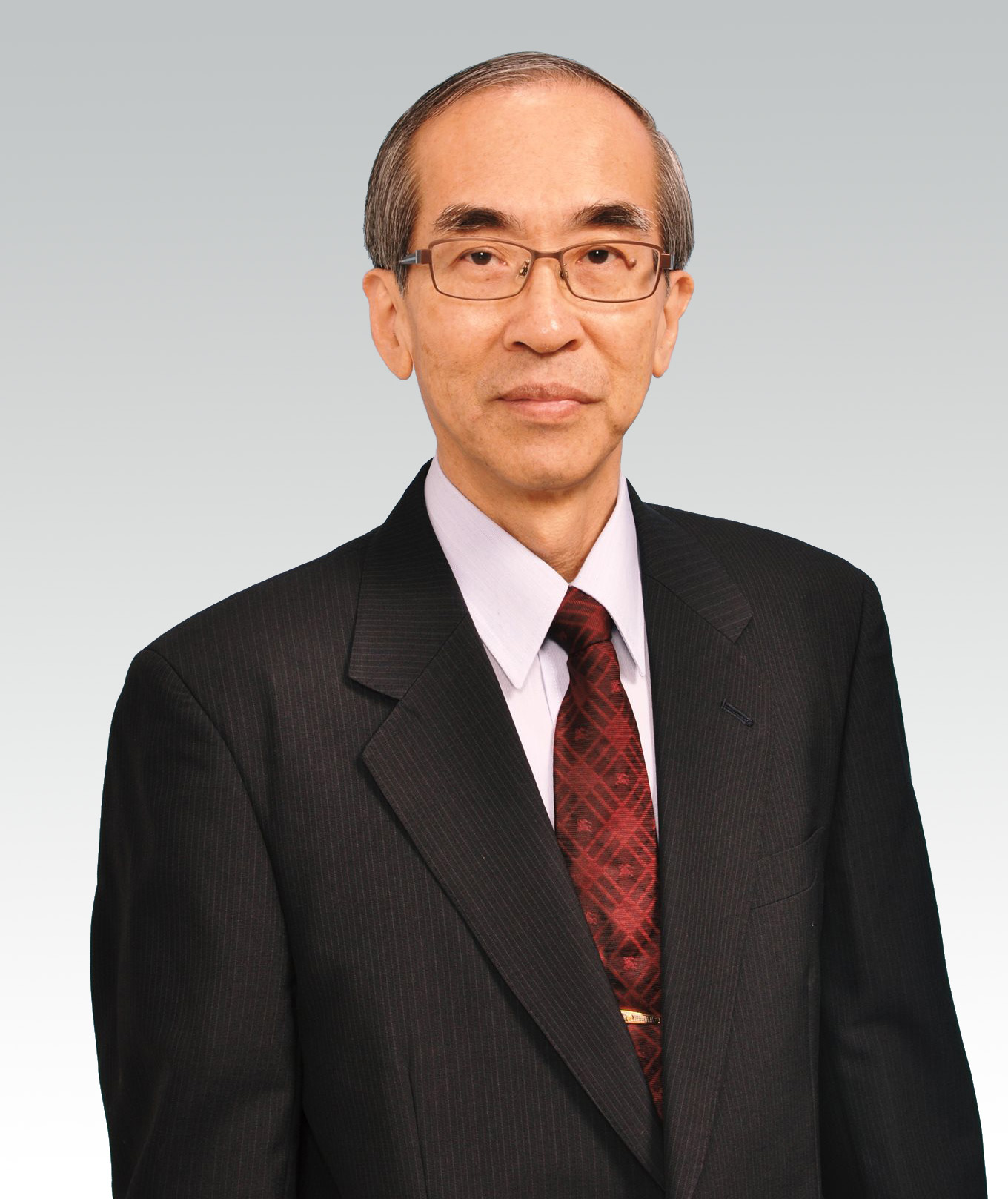 The 5th Annual Meeting of the Intestinal Flora Transplantation Clinical Research Foundation will be held on Sunday, September 19, 2021.
The 5th Annual Meeting of the Intestinal Flora Transplantation Clinical Research Foundation will be held on Sunday, September 19, 2021.
The main theme of this conference is “Relay of Intestinal Bacteria to the Next Generation”.
We would like to thank everyone for their support and cooperation in holding this conference despite the difficult situation caused by the new coronavirus.
Looking back over the past year, the importance of intestinal bacteria has been further recognized, and it can be inferred from many papers from around the world that the intestinal environment is involved in the treatment and prevention of many diseases. We are proud to be the first and only organized clinical research institute for transplantation of intestinal flora in Japan, and we have been contributing to society by steadily disseminating many basic and clinical researches to society and aiming for further development.
At this year’s conference, we will present the results of the clinical research we have conducted over the past four years.
Dr. Taiichi Katayama, Associate Dean of the United Graduate School of Child Development, Osaka University and Professor of Molecular Biogenetics, will deliver a keynote lecture on “The Usefulness of Objective Testing Methods for Autism Spectrum Disorders”. Efforts to objectively verify the usefulness of intestinal flora transplantation in autism spectrum disorder have begun.
In addition, in the joint research with Professor Mariko Takeda, Faculty of Pharmaceutical Sciences, Kobe Gakuin University, which started last May, the basic research of “Hydrogen NanoGAS™ Water” containing fine bubbles used as a solvent for the intestinal flora transplantation was further advanced and a patent application was jointly filed. The results of this year-long verification will be presented.
We will continue to advance our clinical research on intestinal flora transplantation and make further efforts to contribute to society toward the goals of disease treatment, prevention, health maintenance, and life happiness. We would like to ask for your great support and cooperation.
We look forward to your participation in what we hope will be a fruitful and productive conference.
opening address
Jinzenkai Tanaka Clinic President
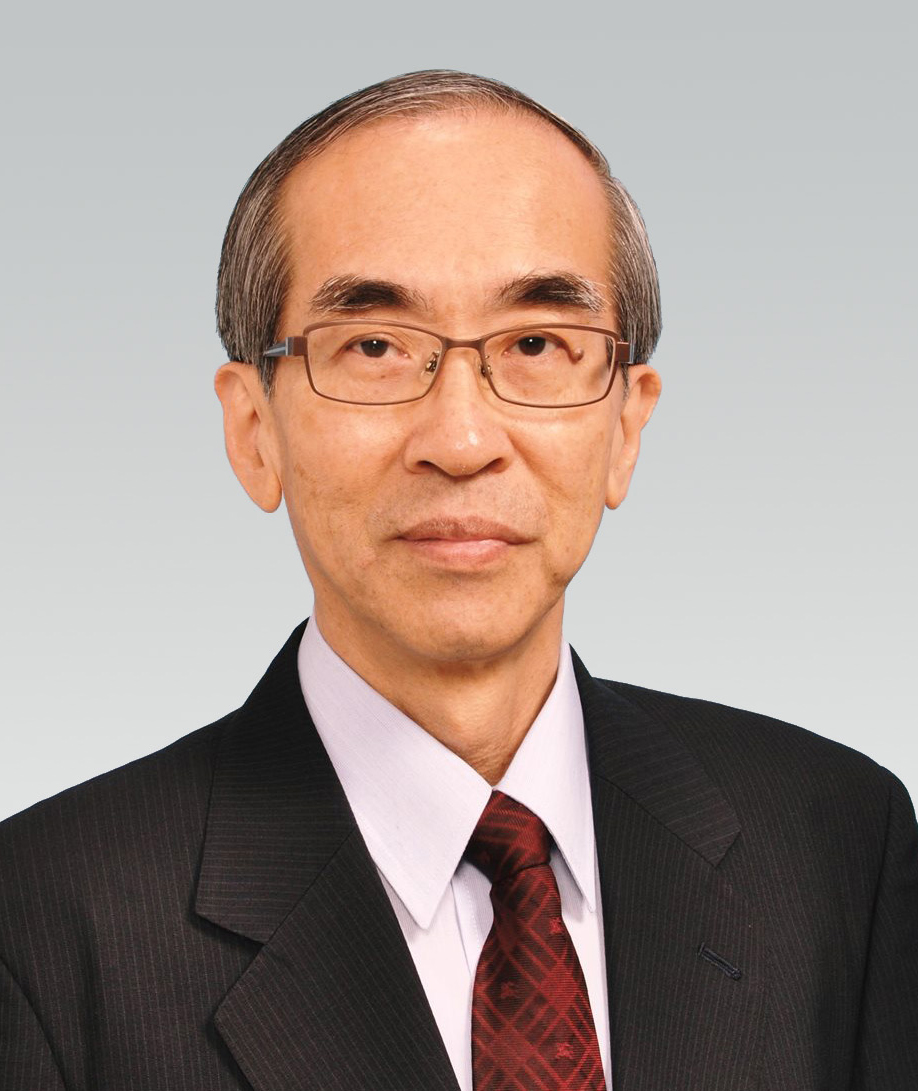 OUR RESEARCH GROUP HAS BEEN SUCCESSFUL IN CLINICAL STUDIES OF INTESTINAL FLORA TRANSPLANTATION (FMT) NOT ONLY IN GASTROINTESTINAL DISEASES SUCH AS ULCERATIVE COLITIS AND IRRITABLE BOWEL SYNDROME, BUT ALSO IN AUTISM SPECTRUM DISORDER IN CHILDREN AND ALLERGIC DISEASES SUCH AS ATOPIC DERMATITIS.
OUR RESEARCH GROUP HAS BEEN SUCCESSFUL IN CLINICAL STUDIES OF INTESTINAL FLORA TRANSPLANTATION (FMT) NOT ONLY IN GASTROINTESTINAL DISEASES SUCH AS ULCERATIVE COLITIS AND IRRITABLE BOWEL SYNDROME, BUT ALSO IN AUTISM SPECTRUM DISORDER IN CHILDREN AND ALLERGIC DISEASES SUCH AS ATOPIC DERMATITIS.IN THE FUTURE, WE WOULD LIKE TO CONDUCT CLINICAL STUDIES ON CANCER AND RENAL DISEASES. BASED ON THE IMPORTANT RELATIONSHIP BETWEEN INTESTINAL FLORA AND IMMUNITY, FMT MAY WORK TO SUPPRESS THE ONSET AND PROGRESSION OF CANCER. IN ADDITION, FROM THE VIEWPOINT OF THE INTESTINAL-KIDNEY RELATIONSHIP, FMT MAY INHIBIT THE DECLINE OF RENAL FUNCTION IN PATIENTS WITH CONSERVATIVE RENAL FAILURE PRIOR TO THE INTRODUCTION OF DIALYSIS, FOR WHOM NO ACTIVE TREATMENT IS AVAILABLE. I WOULD LIKE TO RAISE THESE POINTS.
Case Report
Natural Art Clinic Director
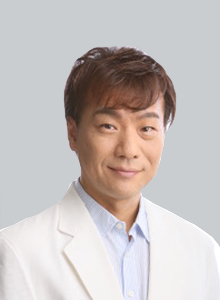 Fecal microbiota transplantation (FMT) has been attracting attention in recent years as a method to improve dysbiosis of the intestinal microbiota (intestinal flora). The NanoGAS®-FMT (NanoGAS®-FMT), which uses nanobubble water containing dissolved minute molecular hydrogen, is considered to be more effective than conventional FMT due to the various properties of nanobubbles.
Fecal microbiota transplantation (FMT) has been attracting attention in recent years as a method to improve dysbiosis of the intestinal microbiota (intestinal flora). The NanoGAS®-FMT (NanoGAS®-FMT), which uses nanobubble water containing dissolved minute molecular hydrogen, is considered to be more effective than conventional FMT due to the various properties of nanobubbles.In this study, we experienced a case of ulcerative colitis that was found to be in remission by the attending physician on endoscopy 3 months after starting NanoGAS®-FMT. Prior to the patient’s visit to our clinic, the inflammation tended to decrease after the start of medication, but the symptoms were not stable enough and fluctuated up and down, with occasional episodes of abdominal pain, diarrhea, and bloody stools. Her symptoms had been aggravated by diet and stress, and she was able to control her diet and lifestyle on her own and stabilize her condition, but she was unable to achieve remission. In order to improve the transplantation efficiency, we improved her intestinal environment and nutritional condition before transplantation.
We plan to report on our experience with this case in terms of treatment course, laboratory data, etc.
Life Clinic Tateshina Director
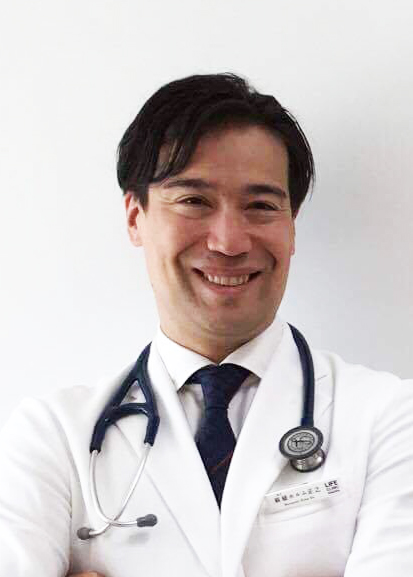 ULCERATIVE COLITIS (UC) IS ONE OF THE MOST COMMON AND GROWING DISEASES IN THE WORLD, INCLUDING JAPAN. FECAL MICROFLORA TRANSPLANTATION (FMT) FOR UC IS NOT A COMMON TREATMENT FOR UC AT PRESENT, BUT IT IS A TREATMENT THAT IS EXPECTED TO PROVIDE SLOW HEALING BY ALTERING THE INTESTINAL FLORA.
ULCERATIVE COLITIS (UC) IS ONE OF THE MOST COMMON AND GROWING DISEASES IN THE WORLD, INCLUDING JAPAN. FECAL MICROFLORA TRANSPLANTATION (FMT) FOR UC IS NOT A COMMON TREATMENT FOR UC AT PRESENT, BUT IT IS A TREATMENT THAT IS EXPECTED TO PROVIDE SLOW HEALING BY ALTERING THE INTESTINAL FLORA.In this study, we experienced two cases of UC and one case of dementia complicated with chronic sinusitis treated with the patent-pending NanoGAS®-FMT, which is a value-added method of mixing NanoGAS® and fecal bacteria solution, instead of the conventional saline and fecal bacterium solution. We report on the cases with improvement in physical symptoms, mental symptoms, and intestinal flora balance.
*The contents of case reports are subject to change. Please understand.
keynote speech
United Graduate School of Child Development, Osaka University
Associate Dean, Professor of Molecular Biogenetics, United Graduate School of Child Development, Osaka University
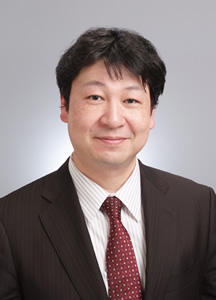 In recent years, various issues related to “autistic spectrum disorder” have been widely discussed in society. However, correct knowledge and understanding of “autistic spectrum disorder” has not yet advanced. One of the reasons for this is that there is a lack of means for others to understand how people with autism spectrum disorder feel and think, and it is difficult to understand from the outside. Therefore, Gazefinder (GF) was developed as a simple and objective visualization tool that anyone can understand. As one of the people involved in the development of the GF, this presentation will be a comprehensive talk that aims to share with the attendees an overview of how to understand the autism spectrum disorder, its challenges, and its scientific solutions in a way that is as easy to understand as possible. In turn, we hope that you will understand the importance of having a “common ground” to understand the differences between oneself and others.
In recent years, various issues related to “autistic spectrum disorder” have been widely discussed in society. However, correct knowledge and understanding of “autistic spectrum disorder” has not yet advanced. One of the reasons for this is that there is a lack of means for others to understand how people with autism spectrum disorder feel and think, and it is difficult to understand from the outside. Therefore, Gazefinder (GF) was developed as a simple and objective visualization tool that anyone can understand. As one of the people involved in the development of the GF, this presentation will be a comprehensive talk that aims to share with the attendees an overview of how to understand the autism spectrum disorder, its challenges, and its scientific solutions in a way that is as easy to understand as possible. In turn, we hope that you will understand the importance of having a “common ground” to understand the differences between oneself and others.ASD CASE AGGREGATION
Symbiosis Institute
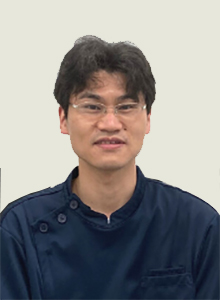 THE RELATIONSHIP BETWEEN VARIOUS DISEASES AND THE INTESTINAL MICROBIOTA HAS BEEN REVEALED ONE AFTER ANOTHER, AND IN RECENT YEARS, THE INTESTINAL MICROBIOTA HAS ATTRACTED ATTENTION NOT ONLY FOR DIGESTIVE DISORDERS, BUT ALSO BECAUSE IT IS SAID THAT THE INTESTINAL MICROBIOTA MAY BE ASSOCIATED WITH AUTISTIC SPECTRUM DISORDER (ASD).
THE RELATIONSHIP BETWEEN VARIOUS DISEASES AND THE INTESTINAL MICROBIOTA HAS BEEN REVEALED ONE AFTER ANOTHER, AND IN RECENT YEARS, THE INTESTINAL MICROBIOTA HAS ATTRACTED ATTENTION NOT ONLY FOR DIGESTIVE DISORDERS, BUT ALSO BECAUSE IT IS SAID THAT THE INTESTINAL MICROBIOTA MAY BE ASSOCIATED WITH AUTISTIC SPECTRUM DISORDER (ASD).WE PERFORMED INTESTINAL FLORA TRANSPLANTATION (FMT) IN SEVEN INDIVIDUALS (SIX MALES AND ONE FEMALE) DIAGNOSED WITH ASD. THE ABC-J, CALLED THE ABNORMAL BEHAVIOR CHECKLIST, SCORES AND EVALUATES BEHAVIORAL PROBLEMS IN ASD, AND THE SRS-2, CALLED THE INTERPERSONAL RESPONSIVENESS SCALE, IS A PSYCHOLOGICAL TEST ALSO USED AS A DIAGNOSTIC TOOL FOR ASD. THE SRS-2, ALSO KNOWN AS THE INTERPERSONAL RESPONSIVENESS SCALE, IS A PSYCHOLOGICAL TEST THAT IS ALSO USED AS A DIAGNOSTIC TOOL FOR ASD.
In addition, using the Gazefinder, a gaze-measuring device that can objectively distinguish between children with typical development and those with ASD tendencies by following the subjects’ gaze, we examined whether there were any changes in the way the subjects saw things before and after the FMT.
THE DATA FROM THESE PSYCHOLOGICAL TESTS AND MEASUREMENTS WERE COMPILED AND FOUND THAT FMT MAY BE AN OPTION FOR IMPROVING ASD DIFFICULTIES. WE REPORT A SUMMARY OF THE DATA COMPILED IN THE PRESENT STUDY AND THE DISCUSSION THAT RESULTS FROM IT.
ASD CASE REPORT
Luke’s Ashiya Clinic Director
 In recent years, the relationship between the intestinal microbiota and the risk of various diseases has been clarified against the background of rapid progress in metagenome analysis technology for intestinal bacteria. The prevalence of children with autism spectrum disorder (ASD) in Japan is said to be increasing year by year, and it is now known that the intestinal microbiota of children with ASD shows differences in specific bacterial species and composition patterns and disorders of diversity (dysbiosis).
In recent years, the relationship between the intestinal microbiota and the risk of various diseases has been clarified against the background of rapid progress in metagenome analysis technology for intestinal bacteria. The prevalence of children with autism spectrum disorder (ASD) in Japan is said to be increasing year by year, and it is now known that the intestinal microbiota of children with ASD shows differences in specific bacterial species and composition patterns and disorders of diversity (dysbiosis).We performed intestinal flora transplantation (FMT) in children with ASD and used the ABC-J and SRS-2 to assess changes in behavior and the Gastrointestinal Symptom Rating Scale (GSRS) to assess changes in gastrointestinal symptoms, in addition to changes in intestinal flora before and after FMT. In addition, changes in gazing targets were assessed using a gazing point distribution measuring device (Gazefinder) to evaluate the difficulty of eye contact and lack of interest in others that are often seen in ASD. In addition, from a psycho-clinical perspective, changes in drawing tests before and after FMT were also discussed.
ALTHOUGH THE NUMBER OF CASES IS STILL SMALL, SOME OF THE CASES EXPERIENCED BY OUR STUDY GROUP SUGGEST THAT FMT IS EFFECTIVE IN IMPROVING SYMPTOMS RELATED TO AUTISM, SUGGESTING THAT FMT MAY BE AN OPTION IN THE CARE OF CHILDREN WITH ASD. WE REPORT OUR EXPERIENCE IN THIS CASE STUDY, INCLUDING PSYCHO-CLINICAL CONSIDERATIONS.
*ASD-related presentations (keynote speeches and ASD case reports) will be available online free of charge to individuals and families with autism spectrum disorders. Please register here.
Basic Research Report
Symbiosis Institute
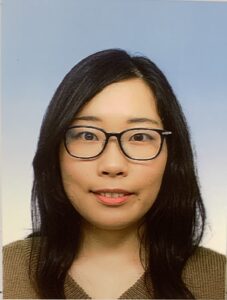 NanoGAS®︎ utilized for intestinal flora transplantation (FMT) has an excellent track record in the treatment of a wide range of diseases, including not only intestinal diseases such as irritable bowel syndrome and ulcerative colitis, but also skin diseases such as atopy and allergies, and mental disorders such as depression and autism.
NanoGAS®︎ utilized for intestinal flora transplantation (FMT) has an excellent track record in the treatment of a wide range of diseases, including not only intestinal diseases such as irritable bowel syndrome and ulcerative colitis, but also skin diseases such as atopy and allergies, and mental disorders such as depression and autism.Scientific validation of NanoGAS®︎-FMT is underway, with a scientific paper on its efficacy against diabetic diseases being published in 2020. Among microbubbles, Nanobubble, with its special physical properties, is expected to have further potential to make a significant contribution to health science in general.
Therefore, we have started various basic clinical studies from 2020 with the aim of utilizing NanoGAS®︎ in the fields of medicine, drug discovery, and food, and are evaluating its usefulness as a new material.
We are pleased to present new findings on three research topics in the fields of pharmaceuticals, drug discovery, and food at the conference.
Registration and Participation Fee
Please register here.
Registration is now closedClick here to watch the opening video of Part 1 of the 4th Annual Meeting.
Although the 4th Annual Meeting in 2020 was held on a reduced scale due to the impact of the new coronavirus, it was a very meaningful day with the participation of medical professionals, general business people, people from research institutes, and patients. We would also like to thank the participants for their cooperation in preventing the spread of infection at the venue.
その他の events に関する記事
Articles about other events
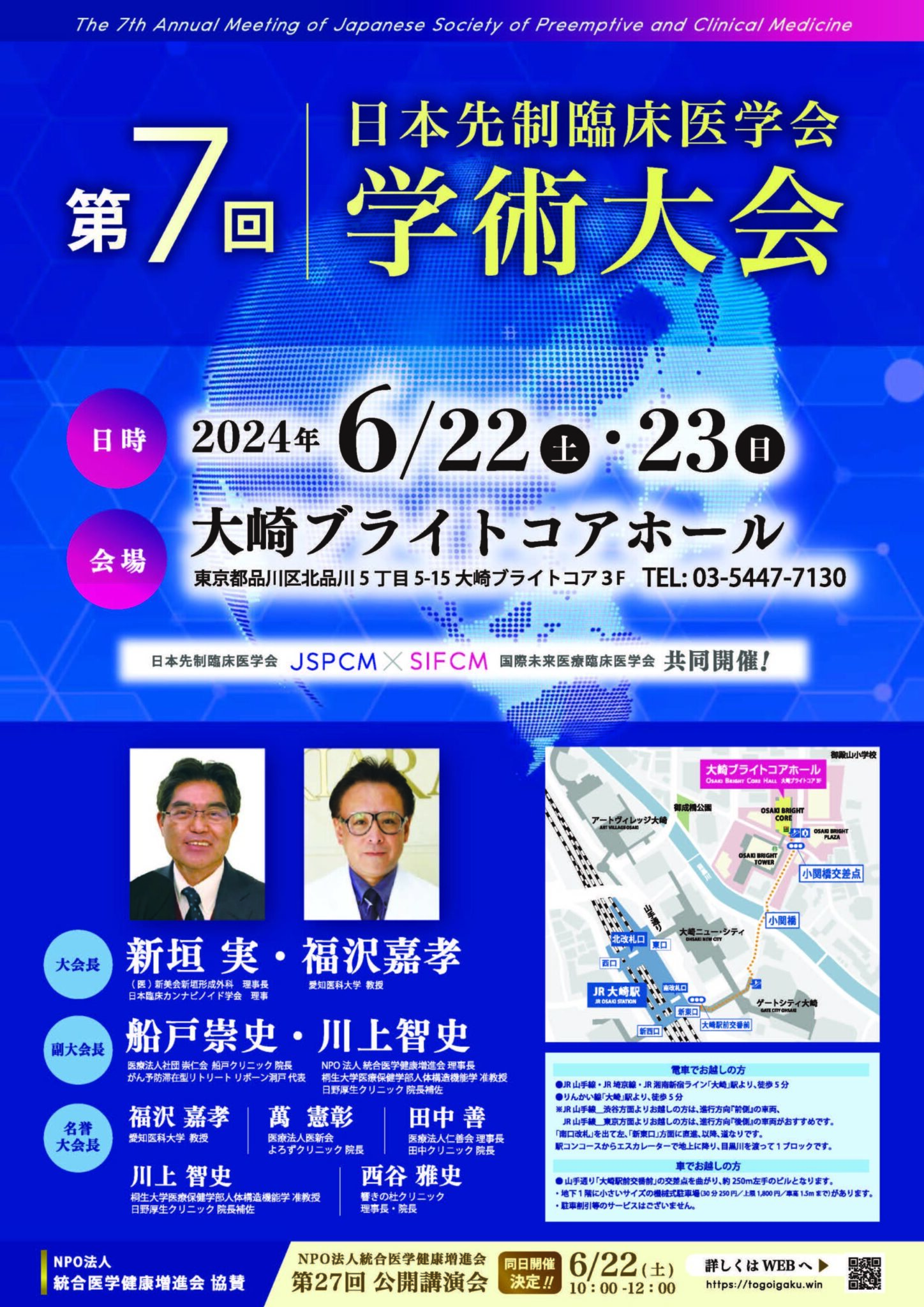
April 03, 2024
【Event】 Dr. Shirotani will speak at the 7th Annual Conference of the Japanese Society of Preemptive Clinical Medicine
Dr. Masahiko Shirotani, Executive Director of the Luke’s Ashiya Clinic, will deliver a special lecture at the 7th Annual Conference of the Japanese Society of Preemptive Medicine to be held on June 22 (Sat.) and 23 (Sun.), 2024. Dr. Zen Tanaka, President of Tanaka Clinic, Nizenkai Medical Corporation, will be the chairperson. Lecture Contents Special […]

March 04, 2024
〈Registration Start〉8th Annual Conference
We are pleased to announce that the 8th Annual Conference will be held again this year. (Venue and online)Anyone is welcome to attend, not only healthcare professionals, but also the general public, students, etc. Date and Time Sunday, September 22, 2024Start 11:00 am (Registration 10:30 am) – Closing at 5:00 pm *General Meeting: Held before […]
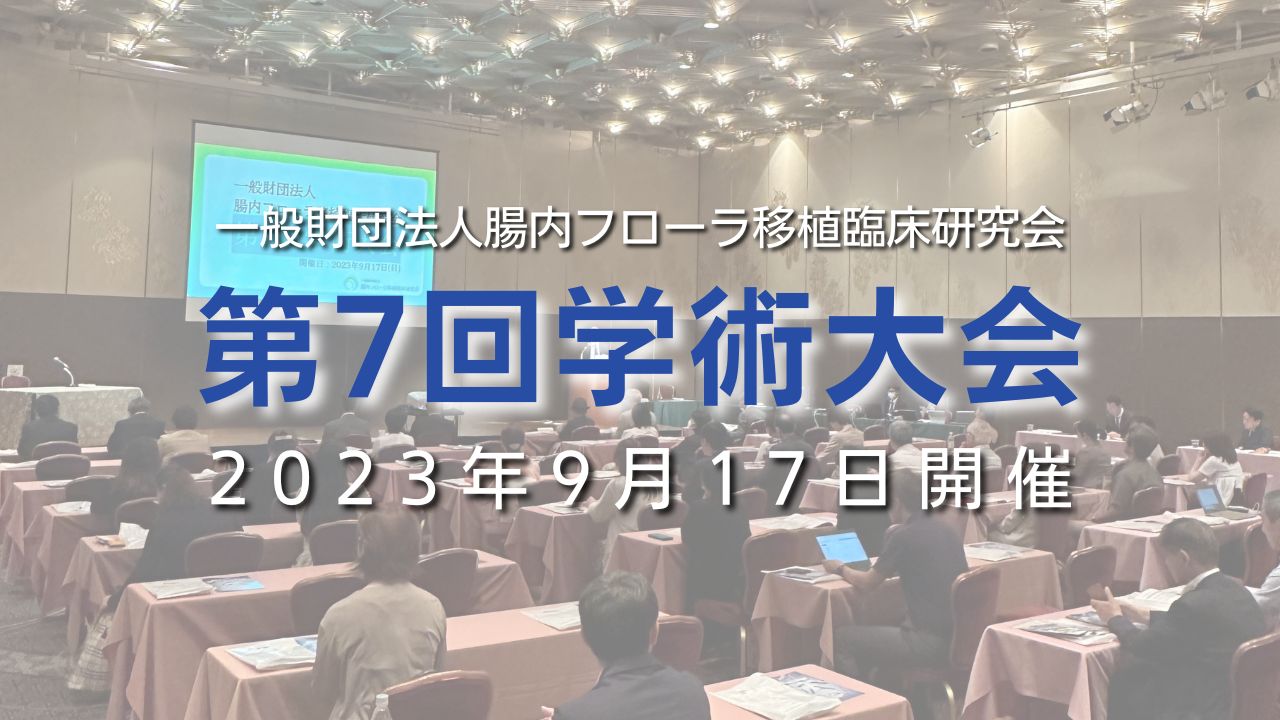
September 27, 2023
第7回学術大会【開催報告】
The “7th Academic Conference” was held on Sunday, September 17, 2023. The event was held simultaneously at the venue and online, and was attended by a large number of people, including medical professionals, general companies, research institutions, patients, and the general public. I would like to take this opportunity to express my gratitude to all […]





